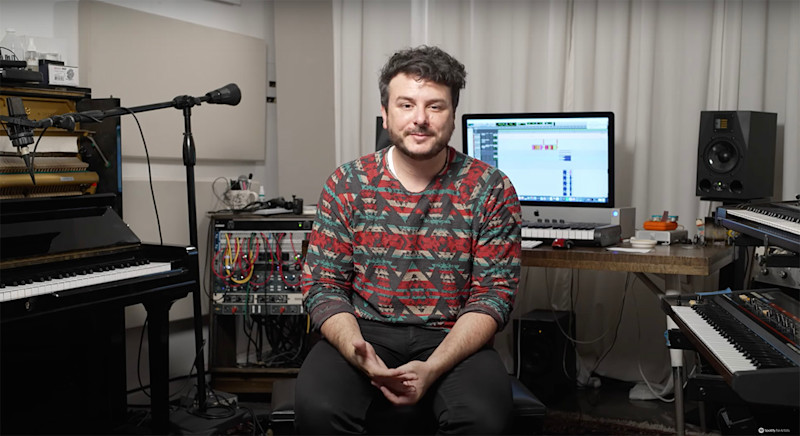
Dan Nigro on Persistence, Producing Olivia Rodrigo, and Pushing Yourself
The former As Tall As Lions frontman shares his tactics for writing and producing great songs with an It-List of pop artists.
The entertainment data company’s Helena Kosinski and Jaime Marconette give tips on using the power of numbers to build your fan base.
As an artist, you know it takes work to stand out in this digital world, and understanding the data surrounding your music is one of the keys to success. Navigating the seemingly endless world of analytics can feel like a daunting task, but as they explain in a recent episode of our Co.Lab Sessions podcast, the team at entertainment data company Luminate have some valuable tips to make it easier.
"Understanding who is engaging with [your] music in 30 countries around the world is powerful information," Luminate Global VP Helena Kosinski says. "Knowing what to look at and how to use it in the best way can really make all the decision-making the most efficient from the very beginning of someone's career."
Listen to the Fanalytics episode of Co.Lab Sessions below and read on for more insight from Luminate.
"Every interaction can be measured, it can be followed, it can be counted," says Jaime Marconette, Luminate's Senior Director of Music Insights and Industry Relations. "So whether it's streams or even if it's a like on a post, a comment or a share, those [are] behavioral metrics and [they are] incredibly important."
Kosinski believes artists should embrace this environment. "Having this ability to communicate directly with fans is really something that should be cherished, even if you feel that it's sometimes maybe a little too much."
Further, numbers can reveal the difference between fans and followers. "You can have a million followers on Instagram, or connections on various different social media platforms. But like if none of them are engaging with your content, then that doesn't mean much," Kosinski commented. "What you want is a smaller core group of fans that are following you, listening to your records, going to your live gigs, and buying your merch. Understanding the levels of engagement is just as important as the number of followers that you have."
Though many artists dream of going viral, Marconette insists that shouldn't be the ultimate objective. Instead, he suggests that you should use data to set long-term goals and focus on achieving them.
"You can't really make your overall marketing strategy [about going] viral because
at the end of the day, the virality is really gonna come from the fans' response--and it's
hard to predict that. It's about setting goals," Marconette says. "If you want to build your
followers, maybe it's, 'Hey, I want to build them a thousand a month.' Also, reevaluate those goals periodically and say, 'Can I push it a little bit further? Where can I dig in more?'"
Kosinski, who specializes in studying international music trends, says collabs, "are one of the most powerful things that an artist can do to expand their fan base."
"We're seeing that artists in different genres, artists from different countries, and artists that speak and sing and perform in different languages are working more and more with each other.
Collaborations [both] big and small really helped artists grow beyond their fan base and helped them go overseas," she says.
Kosinski also shared that it can be simple to measure the success of a crossover. "It's shown in the volume of streams across your catalog that are going up, but also in engagement, in other social networks, in other areas of your musical life. Monthly listeners are [also] part of it."
Listen to the full Co.Lab Sessions episode on Fanalytics and then check out other Co.Lab Sessions podcast episodes about building your team, creating a scene around your music, protecting your career, and more.
The former As Tall As Lions frontman shares his tactics for writing and producing great songs with an It-List of pop artists.
The Notable Songwriters of the Month, who co-wrote half of Bey’s album, run down what’s gone into their decade of hits.
Tangible resources you can leverage to turn listeners into fans.

